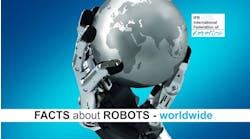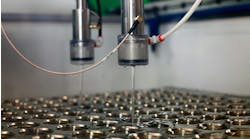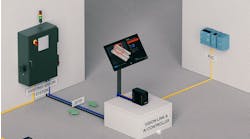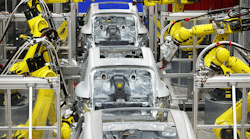Despite the economic slowdown in the industrial sector over the past year, the incidence of actual and planned automation investment is very high in American manufacturing, according to a new report from the MAPI Foundation.
- The survey findings show that the high incidence of automation investment spans various company sizes and manufacturing subsectors:
- 83% of respondents indicated they engaged in automation investment in the past five years.
- More than three-quarters (76%) plan to engage in such investment during the next three years.
- 45% indicated their automation investment was part of a broader technology upgrading and 35% said it was a stand-alone investment. The remainder of respondents indicated they engaged in both.
“Automation implementation exhibits characteristics of both capital investment and innovation investment,” observes Cliff Waldman, director of economic studies at the MAPI Foundation. “While deploying machinery into a production line has characteristics of capital equipment investment, it does not appear to be as short-term oriented as capital investment. Automation also does not appear to be an element of business expansion. Rather, it is more like process innovation whose principal goals are cost reduction and product quality improvement.”
“The study also points out that automation investments are more often seen as part of a broader business-wide technology upgrade as opposed to a stand-alone application,” said Joe Kann, vice president of global business development at Rockwell Automation, a sponsor of the report.
Automation use by competitors, customers, and suppliers were three of the top five drivers of automation investment over the past five years, inferring a supply chain and industry influence on this business decision. It also suggests that as supply chains become increasingly global, automation activity by U.S. manufacturing companies will likely spread around the world.
This story was originally published on Material Handling & Logistics, an NED partner site within Penton's Manufacturing & Supply Chain Group.










